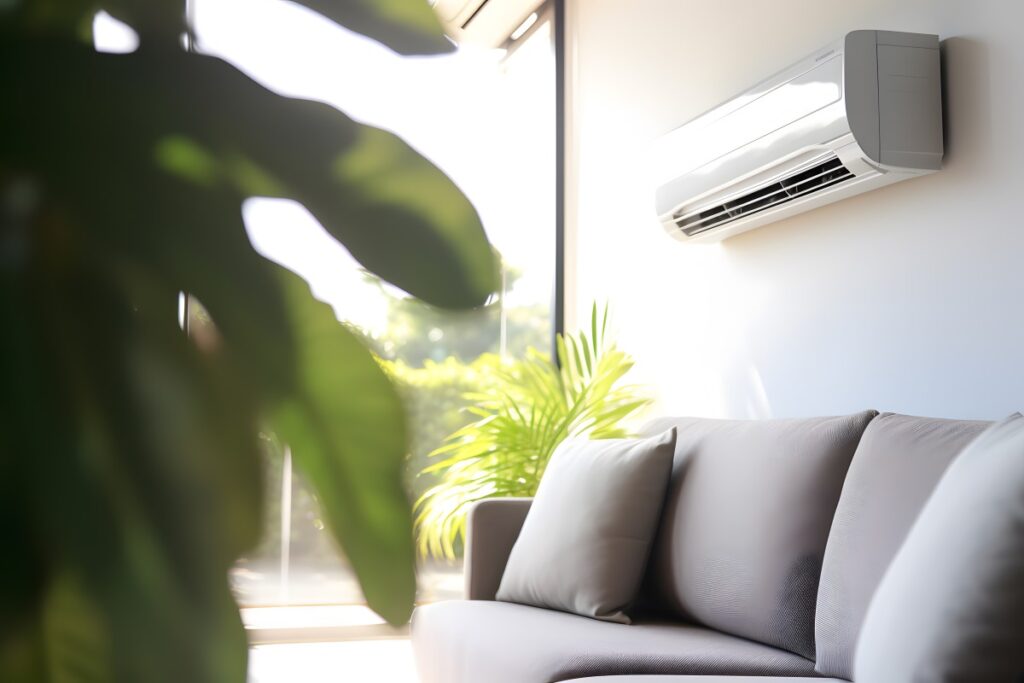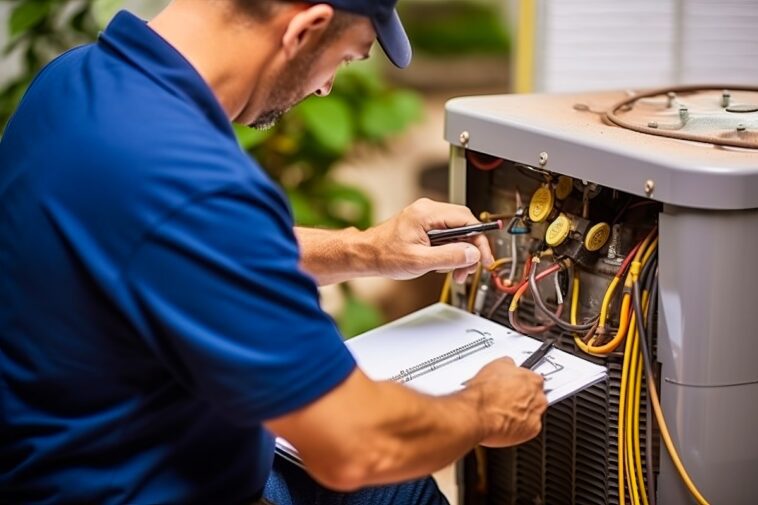A crucial aspect of heating, ventilation, and air conditioning (HVAC) system longevity is maintenance. Regular upkeep not only ensures optimal performance but also extends the lifespan of your HVAC equipment. Here are some key considerations for assessing and enhancing the longevity of your HVAC system:
Scheduled Inspections
Regular inspections by qualified commercial HVAC technicians are essential for identifying potential issues early on. These inspections typically involve checking components such as filters, coils, ductwork, and refrigerant levels. Addressing minor problems promptly can prevent them from escalating into major issues that could damage the system or reduce its efficiency.
Additionally, furnace maintenance plans are important because they offer a proactive approach to HVAC system care, ensuring that your heating system remains in optimal condition throughout the year. These plans offer preventive maintenance, including regular inspections and tune-ups by qualified technicians.
The benefits of regular inspections and having maintenance plans include improved efficiency, extended lifespan, enhanced indoor air quality, safety assurance, and compliance with warranty requirements.
Filter Replacement
Dirty or clogged air filters restrict airflow, making the HVAC system work harder to maintain desired temperatures. This increases energy consumption and puts unnecessary strain on the equipment, leading to premature wear and tear.
If you notice a decrease in the airflow coming from your vents, it could be a sign that your filters are clogged and restricting airflow. The same is true when you or your family members experience increased allergy symptoms or respiratory issues because of its impact on indoor air quality.
Regularly replacing air filters, typically every one to three months depending on usage and filter type, is crucial for optimal performance and longevity.
Cleaning Coils and Ducts
Over time, coils and ducts can accumulate dust, debris, and mold, which can hinder airflow and decrease efficiency. Inspect visible parts of your HVAC system, such as vents or coil surfaces, for signs of dust, debris, or mold accumulation, which indicate the need for cleaning.
If you notice weaker airflow from your vents, it could indicate that dust and debris are obstructing the ducts or coil passages, hindering proper airflow. Accumulated mold and mildew in ducts or on coils can cause unpleasant odors to circulate throughout your space, indicating the need for cleaning and remediation.
Regular cleaning of coils and ductwork helps maintain proper airflow and prevents contaminants from circulating throughout the system, leading to improved indoor air quality and prolonged HVAC system lifespan.

Lubrication and Component Maintenance
Moving parts within the HVAC system, such as motors, fans, and bearings, require lubrication to minimize friction and wear. If you hear unusual or excessive noise coming from the HVAC system, such as grinding, squealing, or rattling, it could indicate insufficient lubrication or worn-out components.
Excessive vibration felt throughout the HVAC system, particularly around motors or fans, could indicate misalignment or worn-out bearings requiring lubrication or replacement. If you find yourself frequently needing repairs or replacements of HVAC components, it may be a sign that lubrication and maintenance are not being adequately performed, leading to premature failure of parts.
Regular lubrication as part of routine maintenance can prevent premature component failure and extend the life of these vital parts. Refer to the manufacturer’s guidelines or maintenance manual for specific recommendations on lubrication intervals.
Checking Refrigerant Levels
Proper refrigerant levels are essential for the efficient operation of air conditioning systems. Low refrigerant levels can indicate leaks, which not only affect system performance but also pose environmental and safety risks. Regularly checking and maintaining refrigerant levels can prevent costly repairs and prolong the lifespan of the HVAC system.
Upgrading and Retrofitting
As technology advances, newer HVAC systems often offer improved energy efficiency and performance compared to older models. Consider upgrading or retrofitting your HVAC system with newer components or energy-efficient technologies to enhance longevity and reduce operating costs over time.
Thermostat Optimization
Programming your thermostat for optimal comfort and energy efficiency can reduce the workload on your HVAC system. Utilizing programmable or smart thermostats for a home upgrade allows you to adjust temperatures based on occupancy patterns, ensuring comfort when needed while conserving energy during periods of inactivity.
Professional Maintenance Contracts
Many HVAC service providers offer maintenance contracts or agreements that include scheduled inspections and tune-ups. These contracts often provide priority service and discounts on repairs, incentivizing regular maintenance and ensuring that your HVAC system remains in top condition for years to come.
Conclusion
By prioritizing regular maintenance and following these guidelines, you can significantly enhance the longevity of your HVAC system, minimize downtime, reduce energy costs, and ensure optimal comfort and indoor air quality for your home or business. Investing in preventive maintenance today can yield significant long-term benefits by prolonging the lifespan of your HVAC equipment and reducing the likelihood of costly repairs or replacements down the road.




